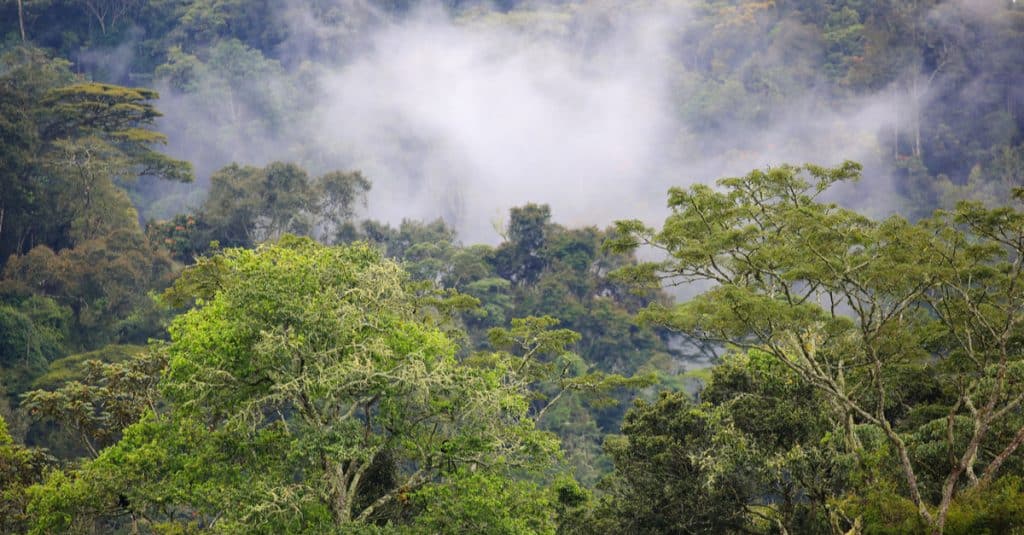“The One Forest Summit in Libreville will not be just another summit. It will be a useful summit for action, for the large-scale implementation of certain decisions that are vital for the future of our planet,” reads the official website of the event. The Libreville meeting, on 1 and 2 March 2023, aims to lead to new commitments and concrete initiatives concerning the advancement of knowledge and the promotion of scientific cooperation on forest ecosystems, the promotion of sustainable value chains in the forest sector, the development of innovative sources of financing, notably by exploring market-based solutions for biodiversity conservation.
The One Forest Summit also expects to promote solidarity between the world’s three major tropical forest basins, the Congo Basin, the Amazon Forest and the forests of South East Asia. “The protection of these three forest basins is a global issue. By sequestering hundreds of millions of tons of CO2, these forest basins play a critical role in regulating the climate,” state the official communication channels for the event.
Celebrities announced
Building on the experience of previous One Planet summits, the summit will bring together heads of state and government, heads of international organisations, financial institutions, private sector representatives, international non-governmental organisations (NGOs), think tanks and research centres, indigenous peoples’ organisations and civil society.
Celebrities will also be present. These include the American actor Harrison Ford, the British ethologist Jane Goodall, the researcher specialising in the peat bogs of the Congolese basin, Simon Lewis, who is also British, the Franco-Brazilian photographer Sebastião Salgado, and the Ugandan primatologist Gladys Kalema.
The choice of Gabon
The choice of Gabon as the host country for the summit is above all a recognition of the leadership and efforts made by the Central African country to preserve its forests. Although 88% of the country is covered by the equatorial forest component of the Congo Basin, one of the planet’s great lungs, it was not until the early 2000s that Gabon created a network of 13 national parks based on the results of botanical, wildlife and socio-economic assessments. These reserves cover nearly 3 million hectares, protecting 10% of its territory. Almost unheard of! The country has also created the largest ocean reserve in Africa, with a network of 20 marine parks and aquatic reserves to protect 26% of its territorial waters and covering 53,000 km².
Since 2010, the Gabonese authorities have shown their desire to develop an environmentally friendly and economically profitable timber industry. This desire is reflected in the ban on the export of logs, while encouraging the construction of local wood processing plants. It is in this context that the Nkok Special Economic Zone (SEZ) will be launched in 2012, established on 1,126 hectares, 27 km from Libreville, the Gabonese capital. It is in this industrial free zone that a third of the national production of Gabonese wood transits, estimated in 2019 at 2.1 million m3, by the Gabonese Ministry of the Economy.
Read also-GABON: CAFI grants new funding of $150 million to preserve forests
To ensure that the wood processed in the NKok SEZ does not flout environmental and social principles, the site manager, the Gabon Special Economic Zone (GSEZ), has launched the TraCer initiative. “All foresters supplying logs to the SEZ are assessed according to the due diligence system. On the basis of the documents of legality of the wood presented by the suppliers, our technicians go down to the forest concessions to check several details, such as the correspondence between the serial numbers of the logs and the numbers of the stumps left in the forest,” explains Séraphin Oumbe, the technical coordinator of the TraCer agency in Nkok. When a logger’s assessment is inconclusive, the Nkok Tracer uses its compliance service, which assists suppliers of non-compliant timber in correcting their discrepancies.
The timetable of the event
The first day of the summit, 1 March, will bring together members of government and civil society as well as experts to advance the ambition of the three main strands of the One Forest Summit. Participants will have the opportunity to take part in ministerial and side events on these three pillars of the Summit.
The second day, 2 March, will be dedicated to the One Forest Summit high-level segment, bringing together heads of state and government on the subject of the Congo Basin and the common challenges faced by the African, Amazonian and Asian tropical forest basins.
Boris Ngounou
